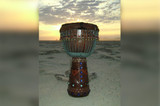Drums, Guitar, or Piano? Choosing the right instrument for you
Ask a person what regret they have from their childhood is, and very often they will say that they wish they had learned to play an instrument. Whether it was the guitar, piano, violin, or drums, a child's innate ability to learn music and excel as they grow cannot be matched by an adult attempting to learn a similar instrument. Musical talent is not something that everyone has, but with practice it can become a valuable part of your daily life.
Learning to play a musical instrument can be difficult but it can also be a very fulfilling part of your life.
Music is all around us. It is such a powerful force that you can't walk down the street without hearing some type of music. It has the ability to elevate mood and relax us, and the creation of music can be extremely therapeutic. Autistic children, for example, benefit greatly from the creation of music. Group sessions involving music, such as a drum circle, allow the children to form a sense of connection with their peers. Music therapy is a widely prevalent form of treatment for anxiety, stress, and depression.
Learning to play music doesn't come as easily for some as it does for others. If you are in your 30's and just starting out, your learning curve on the instrument will be steeper and it may take you a bit longer than a younger person to pick it up. Why is it more difficult as you get older? For one, our brain's ability to learn new things declines slightly with age. We are no longer a sponge, ready and able to pick up new things, in the same way that children are. Another reason adults take longer to learn to play music is that they lack motivation. For adults, there are many distractions that will prevent us from focusing solely on music. Children, without a care in the world for the most part, can concentrate on one task without worrying about work or what to make for dinner. Yet another reason is that, as we age, we develop into left or right brained functioning people. Some people are artists, some excel at business. We are all different, and as such our musical abilities are different as well.
If you are looking for an instrument that suits you, consider your interests first and foremost. What type of music do you like? Rock, classical, pop, Latino? Focus your instrument search on the type of music that suits you best. Second, consider your budget. How much money do you have to spend on an instrument? Items such as pianos can be rented, but guitars or drums are inexpensive and easy to purchase. Third, ask yourself if you are planning on playing an instrument as a social medium. Do you want to participate in a band and play electric guitar or a drum kit? Are you interested in drum circles and want to join a community of drummers playing the djembe, congas or didgeridoo? Music can be part of a social setting, but also can be used as a solitary mode of relaxation.
Learning to play music can be difficult, but it can also be a very fulfilling part of your life. Decide which instrument or style of music is the best for you and focus on it as much as possible. With time and dedication, your ability to play music will flourish.
Recent Posts
-
What is the Best Size Djembe for Beginners?
If you're new to the world of percussion and interested in learning the djembe, you're in for a t …16th Jul 2024 -
The Benefits of Becoming a Drumming Teacher: Transforming Passion into Profession
Why become a drumming teacher? Becoming a drumming teacher is an excellent way to share your pas …22nd May 2024 -
What Makes the Djembe Drum a Spiritual Instrument in African Music?
Origin and history of the Djembe drum The Djembe drum originates from West Africa and holds sign …16th May 2024



